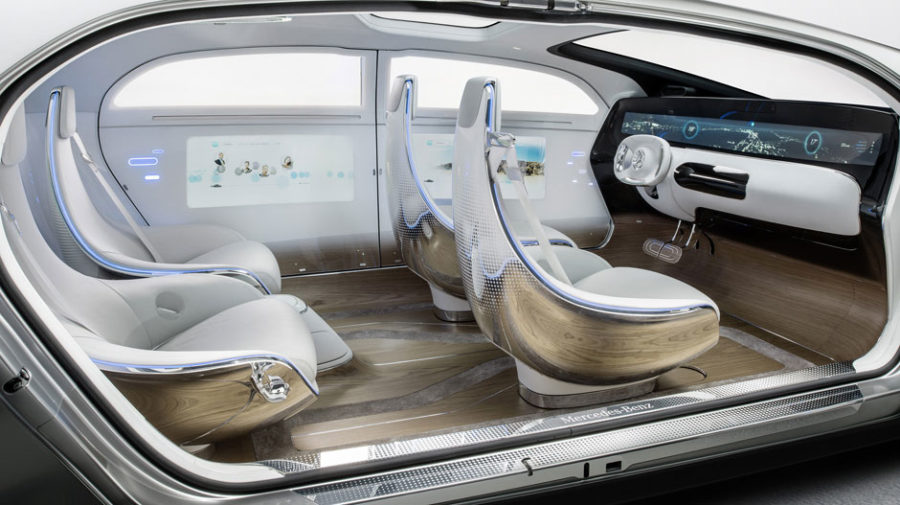Autonomous Cars and Electric Cars: Past, Present, and Future
Cars are a very big part of many people’s lives (including mine). The evolution of cars has been very rapid. They haven’t been around very long and have had many good and bad impacts on the world. People have been able to get to work faster (and slower). It’s give birth to many jobs and futures for those individuals embraced by potential knowledge of cars. Not everything about cars are so great though. Death rates have risen and air pollution has harmed this earth for a long time. Many individuals and whole car companies have invested their lives and knowledge into finding solutions to these two problems. These investments have led to the ideas and existence of electric cars, and autonomous cars.
Electric cars have been around longer than most people think. In fact, they’ve been around longer than petrol powered cars. In 1884, Thomas Parker builds the first practical electric car that can be recharged (Shahan). They weren’t considered as much as their petrol counterparts. Electric cars have made a comeback in the 21st century with the very popular company, Tesla. The most famous model, the model S is not very cheap, with prices ranging from $70,000-$100,000 (Bullis). The car has a max range of 265 miles on a full charge and can deliver a 200 mile charge in half an hour (Bullis). The started off not even being comparable to their petrol counterparts, but now their popularity has grown because of new capabilities and the pressuring of emissions laws and climate change.
Autonomous cars have not become as usual as electric cars. This will not be the case for very long though. Tesla’s cars have a system called “Autopilot” that can drive the car by itself but still requires the driver to pay close attention at their surroundings (Thomson). Mercedes is also developing an autonomous car called the F 015. The car informs pedestrians when to cross and is still considered a rolling laboratory (Ziegler). Based off of my own engineering knowledge and studying, self driving cars use navigation and set way points based off of where the car presently is. It would use many sensors to detect traffic lights, signs, people, objects and other factors.
Electric cars are finally becoming more common as time progresses. If self driving cars’ technology improves (or when it improves), will it progress as fast as electric cars? Who knows. I hope that someday we will have more electric cars and self driving cars. I personally think we already have enough bad drivers on the road and pollution!
Works cited
1. Bullis, Kevin. “How Tesla is Driving Electric Car Innovation”. www.technologyreview.com. August 7th, 2013. MIT Technology Review. Accessed April 7th, 2017. https://www.technologyreview.com/s/516961/how-tesla-is-driving-electric-car-innovation/
2. Ziegler, Chris. “Riding in the Mercedes-Benz F 015; I spent a day in the year 2030”. www.theverge.com. March 20th, 2015. Vox media. Accessed April 5th, 2017. http://www.theverge.com/2015/3/20/8263561/mercedes-benz-f-015-self-driving-video
3. Colwell, K.C. “2016 Ford Focus Electric; could you live without a gas station?”. www.caranddriver.com. April 2016. Hearst autos. Accessed April 4th, 2017. http://www.caranddriver.com/ford/focus-electric
4. Shahan, Zachary. “Electric car evolution”. cleantechnica.com. April 26th, 2015. Sustainable Enterprises Media Inc. Accessed March 30th, 2017. https://cleantechnica.com/2015/04/26/electric-car-history/

Hello! My name is Noah Brown. I am a senior at Sandy Spring Friends School and serve as the editor for SSFS Life. I have been on Wildezine since the second...











Hanke Chen • Mar 21, 2018 at 4:16 pm
Sadly, electric cars as a solution to pollution are proven to be a controversy. Without using fossil fuel as a source of energy, people need to use electricity generated by fossil fuel, creating more troubles. However, using clean energy such as nuclear energy can be a great solution for consideration (eg. extract energy from H2 and O2 from water).
Haoran Zhu • Nov 16, 2017 at 3:43 pm
As shapers of our future world, we should think about the implications of autonomous cars. When they become mature in the market after probably 15 years, their development will influence the economy and the way people live. Here is my economic theory: because autonomous cars are much safer due to its 360-degree visibility and the electric control system (meaning no human issues such as fatigue), there will be fewer accidents on the road. This will cause car insurance decrease. Besides, car service companies such as Uber will incorporate autonomous cars into their system and will no longer have to pay driver costs, so their leftover cash will have to flow to somewhere else (maybe into investment). Besides, society becomes more efficient and people will not rely on buying a car because they are expensive and useless for at least 12 hours staying in the garage. Thus, people will rent cars more often when they want to drive and otherwise use Uber or Lyft. You mentioned Tesla, which I think will shape our future with its leadership and technology. I am optimistic about what is coming next and encourage us to think about our future.
Emma Black • May 31, 2017 at 11:10 pm
First of all, I loved your article. Although I am not someone who knows much about cars or has a general interest in cars, I find the impact of automobiles that you drew attention to so fascinating. Do you think it is possible that in 40 or so years all pedestrian cars will be self-driving? If so, do you think it would promote change in global infrastructure? Perhaps there would be roads that control where the car goes rather than the car. Also, if all cars became self piloting in the future, would manufacturers design their cars to be lighter weight with less heavy safety devices inside of it? I would imagine that without human drivers, the likeliness of an accident due to drunk driving or driving under any influence would be decreased dramatically. I am so excited to see what the future of electric automobiles will do for the global community.
Hanke Chen • May 22, 2017 at 1:03 pm
“If self driving cars’ technology improves (or when it improves), will it progress as fast as electric cars?”
Addon information:
Self-driving cars are cars with the special algorithm inside the cars (or networks of cars). Although new energies are better in some ways, energy efficiency is still a huge problem. We can see in the future, the danger of driving cars will be decreased by self-driving car. This way decreases the danger of having a huge electrical battery for the electrical cars.
Yes. It is future.
Dylan Evans • May 21, 2017 at 6:21 pm
Interesting article. I had never thought of electric cars and automated cars being related or grouped together, but it actually makes a lot of sense. They are the two advancements that have been at the forefront of research and of the public eye. I do think that the problems they are intended to solve, however, are enormously unrelated. Global warming is on a completely different level than car crash deaths, despite how intense car crash deaths are.
One thing that I always think about with automated cars that wasn’t covered here is how much faster travel would be. If there was no danger of crashes, and all cars were linked to each other through the internet, you could group the cars together much more tightly, and the traffic speed would *still* be faster than it is today. I understand not talking about that in the article though, you can’t talk about *everything* to do with a topic in any scenario. Excellent article!
Flint Eller • May 16, 2017 at 1:43 pm
Hey, loved the article, very informative. I did not know that electric cars were around longer than other cars, thats crazy! It seems like if they were better for the environment, and they were created first, then why don’t we use them more? With all the new features cars seem to be getting closer and closer to mobile rooms that you see in futuristic movies. In 30 years, I wonder if people will even learn how to drive. The other question is, how can electric cars be so much better for the environment if the electricity to run them still has to be produced? How long will it take for electric or self-driving cars to take over the market, when will we make the leap? Thanks for getting me thinking about these questions, cool topic!